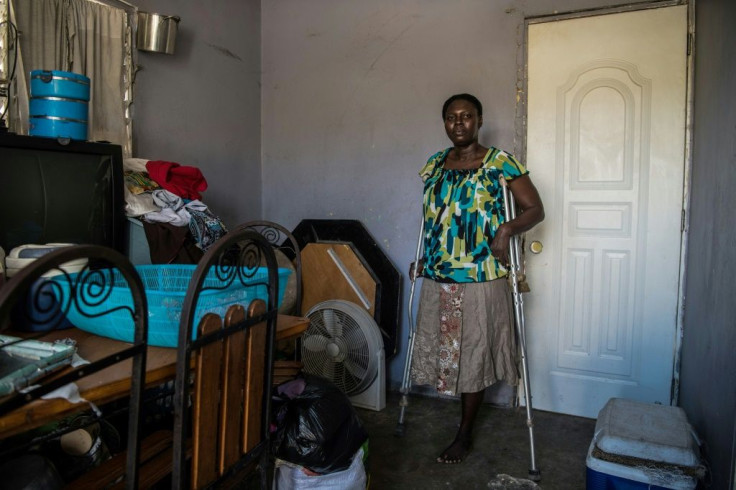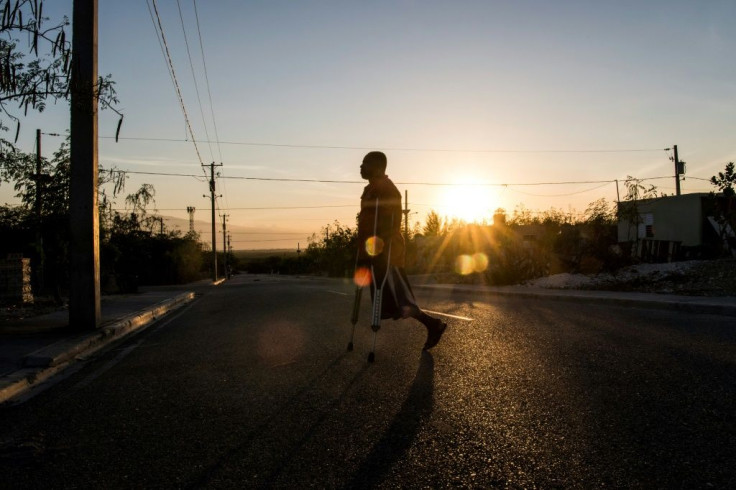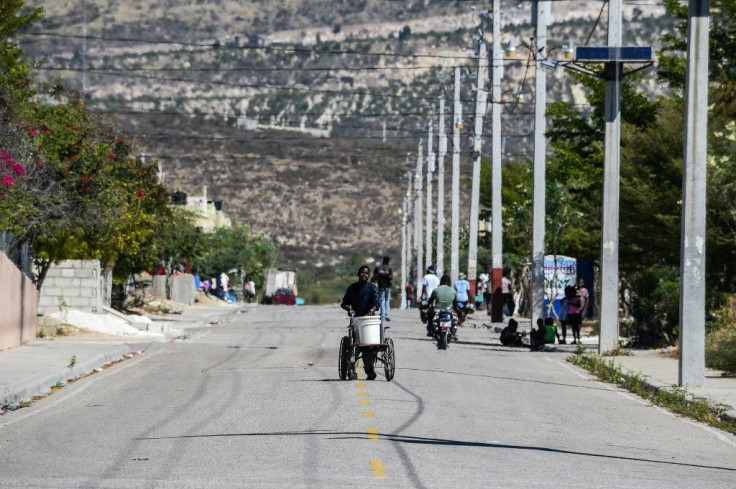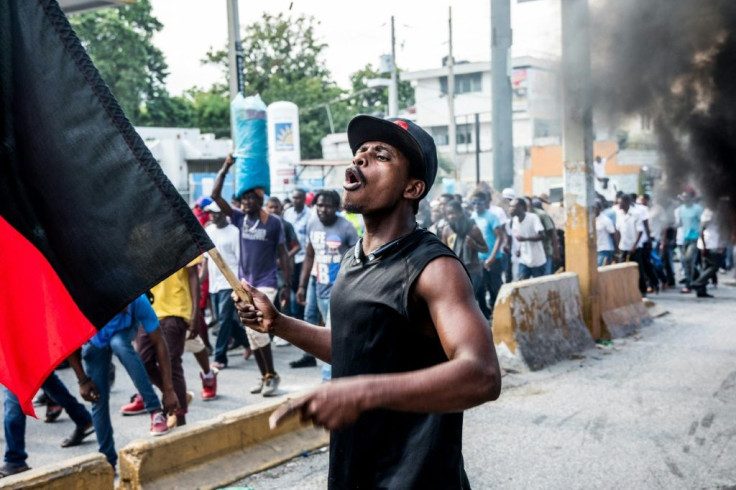Haiti Commemorates Deadly 2010 Quake In Anger And Bitterness

Haitians on Sunday paid somber tribute to the thousands who died in the devastating earthquake of January 12, 2010, as grief mixed with bitterness over failed reconstruction efforts and continuing political instability.
Thousands of Haitians flowed into churches for masses celebrated in the memory of the dead.
President Jovenel Moise, accompanied by members of his government and in the presence of foreign diplomats, placed a floral wreath at a memorial to quake victims at the site, just outside capital Port-au-Prince, where thousands were buried in mass graves.
After the quake struck, Moise said, "We ate together, we slept together, we cried together, we prayed together." But now, he added, "hatred and discord have filled our hearts ... Today we need that solidarity, that unity."
Moise's appearance drew a small number of anti-government protesters, a reminder of the deep and widespread resentment over the failures of both the government and international aid groups since the devastating quake struck 10 years ago.
Over 35 agonizingly long seconds on that fateful day, a magnitude-7 quake transformed much of Port-au-Prince and the nearby cities of Gressier, Leogane and Jacmel into dusty ruins, killing more than 200,000 and injuring some 300,000 others.
More than a million and a half Haitians were left homeless, leaving island authorities and the international humanitarian community with a colossal challenge in a country lacking either a land registry or building codes.

"It's a lost decade, totally lost," Haitian economist Kesner Pharel told AFP.
"The capital has not been rebuilt, but our poor governance is not the exclusive responsibility of the local authorities; at the international level we have not seen a mechanism for managing aid that would allow the country to benefit."
The billions of dollars promised by international donors in the weeks after the catastrophe seem to have vanished with little to show for them, fueling the bitterness of survivors who live today exposed to the same dangers as existed before the quake.

"Ten years later, we see an even greater concentration of people in the metropolitan area," Pharel said. "If we were to have a quake of the same magnitude, the results would be the same."
"The country was never rebuilt, and we're back to square one."
The quake destroyed hundreds of thousands of homes, as well as administrative buildings and schools, not to mention 60 percent of Haiti's health-care system.

The rebuilding of the country's main hospital remains incomplete, and non-governmental organizations struggle to make up for the state's many deficiencies.
"After the quake, we saw a big influx of trauma cases because there was an enormous number of injuries. What we see today is that we had to reopen a trauma center but ... more than 50 percent of the injured we see now are gunshot victims," said Sandra Lamarque, chief of mission for Doctors Without Borders in Haiti.
Japan's ambassador to Haiti, Mitsuaki Mizuno, underlined the challenge facing foreign groups trying to help Haiti.
"For a good and efficient cooperation, we need security and political stability," he said. "Some Japanese companies came here and sometimes they have been threatened by gangs. We need security to do better."
Haiti meantime has been gripped by a severe socio-political crisis that has partly overshadowed efforts at properly mourning the dead.
In the summer of 2018, corruption scandals implicating Moise and every post-quake government provoked a sharp backlash, mobilizing young protesters -- more than half the country is younger than 30 -- who live with little prospect for employment in a country marked by growing insecurity amid frequent clashes between armed gangs.
Anti-government demonstrations paralyzed daily life across much of Haiti from September to December of last year.
Moise used his remarks Sunday to again call his political opponents to engage in dialogue, saying the past decade of trouble and instability had "certainly caused more damage to our economy, and done greater harm to our society, than the earthquake."
Yet, the state's weaknesses, on display for the world to see since the earthquake, have only grown worse: National Assembly elections due in November were simply not held, meaning the mandate of the lower chamber expires Monday.
With no functioning legislature, Moise, who is reviled not only by his political opponents but by a large part of the civilian population, will now have the ability to govern by decree.
"The past 10 years have been the toughest years for Haiti, politically, economically," entrepreneur Magalie Dresse told AFP, "and I think that people have a sense of lost hope ... The international community no longer has Haiti on their radar."
But for those who have stuck with Haiti, she had a message: "We want to build with them. It's no longer about assistance, it's about ... how do we envision the future."
© Copyright AFP {{Year}}. All rights reserved.





















